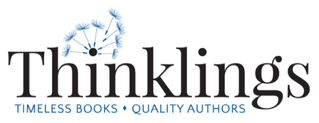|
This blog post was originally published in our CEO, Deborah Natelson's, blog. The old cliché of a question from fans and reporters to authors is, “Where do you get your ideas?” Most authors find this a very difficult question to answer, simply because there isn’t one specific place they get their ideas. “Ideas just come to me,” they say, or “out of my head” or “from anywhere.” Yes, these things are true. But what many of these questioners are actually asking is, “How can I get ideas for writing?”—for which none of those answers is helpful. I would therefore like to give some actually useful advice for coming up with ideas and brainstorming when you feel stuck. What ideas you get “out of your head” depends on what you put into your head. One of the greatest dangers for a writer, when it comes to coming up with new ideas, is stagnation. If you only read the same things, go to the same places, talk with the same people—it’s easy to dry up. Diversity is the key here. Choose to randomly go somewhere new. Make sure you keep learning new things. Occasionally read National Geographic or some other magazine of your choice from which you can learn things you not only never knew, but never knew you wanted to know. Now consider: what do you spend a lot of time thinking about? Are you thinking about a variety of topics, or just the same three to five things over and over again? Do you think continuously about (from my own life), 1) your dog, 2) what you’re going to make for your next meal, 3) your current goal . . . and not much else? If so, you are constraining your own brain. Go find something different to think about. Not sure what to think about? Go to https://randomwordgenerator.com/. Take the FIRST word it generates, and then go read the Wikipedia article on that word and learn something. (Excuse me for a moment; I need to go read about “mouse.”) Most really clever ideas are in fact the combination of two or more seemingly unconnected items. The second random word I generated was “election,” so I have mouse + election. So let’s write something. The first mouse President of the United States was not, despite all expectations, named “Mickey.” or This is the tale of how a theme park/movie company came to rule the world. or We shuddered, terrified, in our homes. We’d thought the aliens had been bad, but then the mice had stepped up to protect us, and we found ourselves under far worse dictators. or Jimmy would never have elected to transform into a mouse, but he hadn’t had much say in the matter. or . . . or . . . or . . . You see what I mean? It took me all of two minutes to write those ideas, and I could’ve kept going for a very long time. If I started to get stuck, all I had to do was a) learn more about mice and/or elections (don’t assume you know! There may be interesting little facts you never guessed hiding within articles), or b) grab a third random word (“tooth”). The position of tooth fairy was, naturally, always held by the elected head of the mice. This technique isn't only for new stories, by the way. If you’re in the middle of a novel and come to a road block, this is one way to get through it: introduce a new, unexpected mouse (or other random factor). Don’t starve your brain. Read your genre. This ties into the first factor, but from a specific angle. I’ve said it before, and I’ll say it again: read more than you write. Devour novels you adore that are in the same genre as you write. Don’t read garbage; read what you love. Remember that when you’re reading, you’re feeding your brain. You can feed it nutritious food (quality prose with depth of story) or you can feed it junk food. And the quality of your writing and of your brain refreshment will reflect that.
As an Amazon Associate, we earn from qualifying purchases.
0 Comments
Your comment will be posted after it is approved.
Leave a Reply. |
Archives
July 2024
Categories
All
|
As an Amazon Associate, we earn from qualifying purchases.


 RSS Feed
RSS Feed
